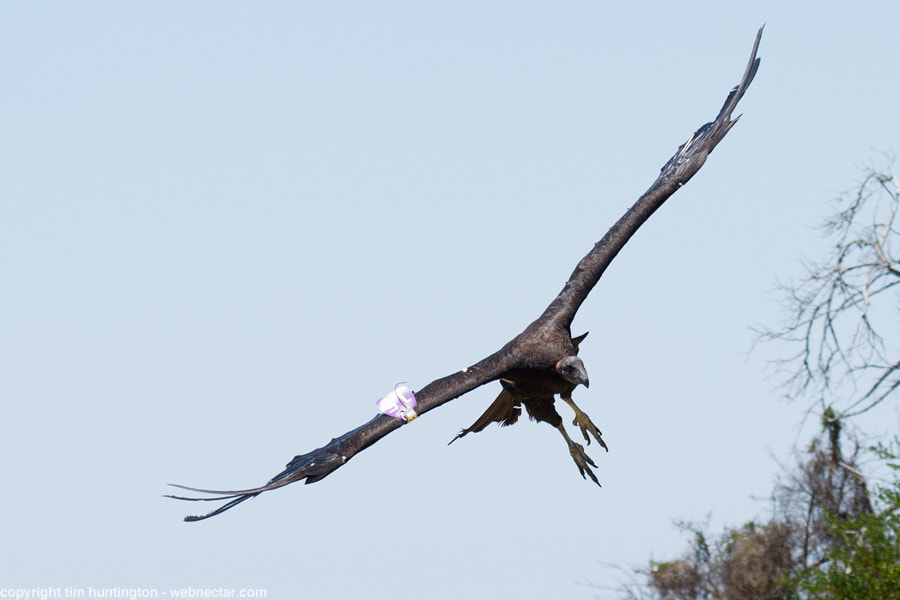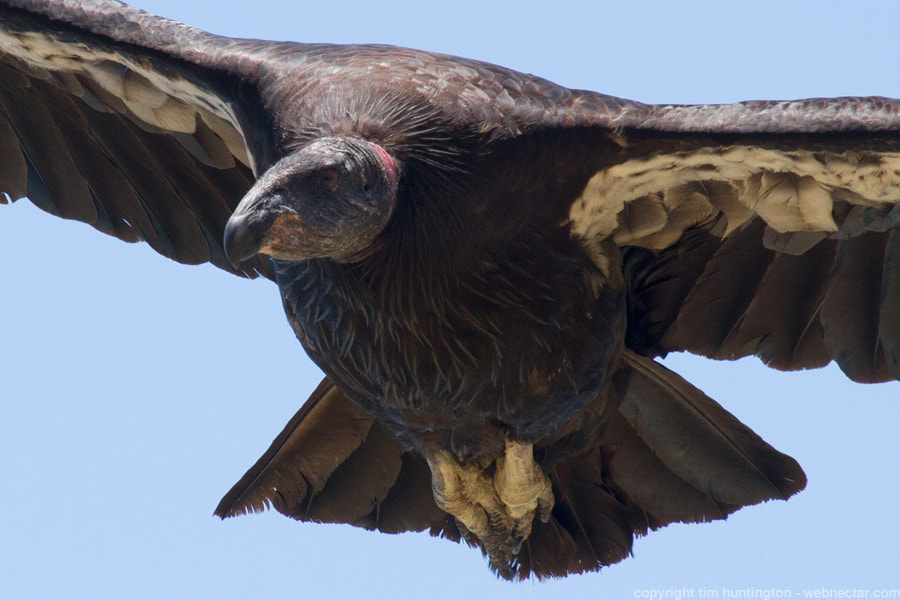Loading bio data
Adult condors can range from 15-25 pounds and as a pre-release juvenile, so Tui-nu-nut (615), pronounced Tooy-new-newt, was on the larger side of the spectrum at 23 pounds! This condor was a rough-and-tumble, strong, young bird, taking after the high ranks of his mother, an original, wild, founder bird nicknamed "Honsi." She had a bold disposition and was known for her lively offspring. Tui-nu-nut (615)'s wild genes were on full display in our flight pen when he arrived from Oregon. He often thrashed around in the large aviary and enjoyed walking up the sides of the mesh like a huge parrot. He would often "cling flap" on the mesh walls until eventually tiring and dropping to the ground. At times he was also seen hanging from the ceiling, tirelessly flapping upside down. Witnessing this behavior was a first for our biologists!
However, this high level of rambunctious activity caused damage to his feathers and he ended up breaking the middle part of his tail feathers, possibly due to hard and frequent ground landings. We had to repair his broken tail feathers using a falconry technique called "imping", where we attached similar molted condor feathers that were collected and saved for that purpose. It worked well and he had an excellent take-off and first flight over the coast upon his release!
Because he was an Oregon-reared bird and his mother had a Native American name, we decided to ask the Nez Perce Tribe Cultural Resources Department to name this bird. They were happy to oblige, and that is how Tui-nu-nut (615), meaning "No Tail", got his name.
However, this high level of rambunctious activity caused damage to his feathers and he ended up breaking the middle part of his tail feathers, possibly due to hard and frequent ground landings. We had to repair his broken tail feathers using a falconry technique called "imping", where we attached similar molted condor feathers that were collected and saved for that purpose. It worked well and he had an excellent take-off and first flight over the coast upon his release!
Because he was an Oregon-reared bird and his mother had a Native American name, we decided to ask the Nez Perce Tribe Cultural Resources Department to name this bird. They were happy to oblige, and that is how Tui-nu-nut (615), meaning "No Tail", got his name.







